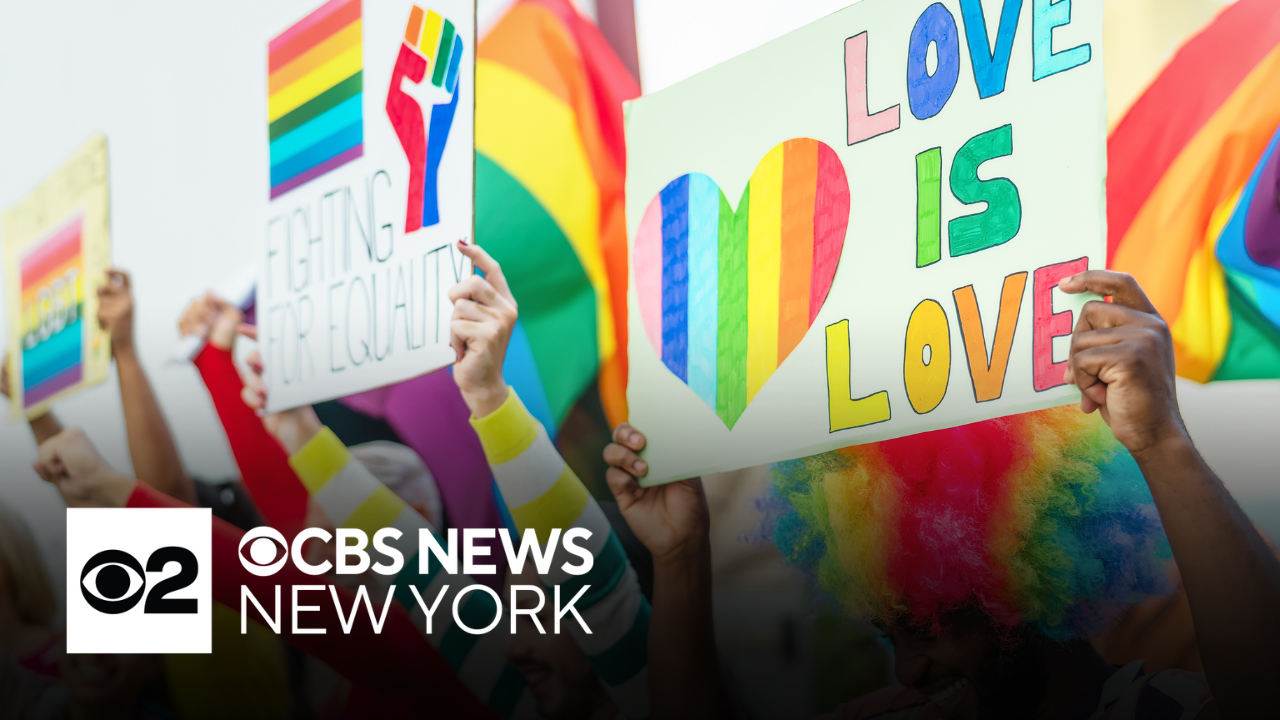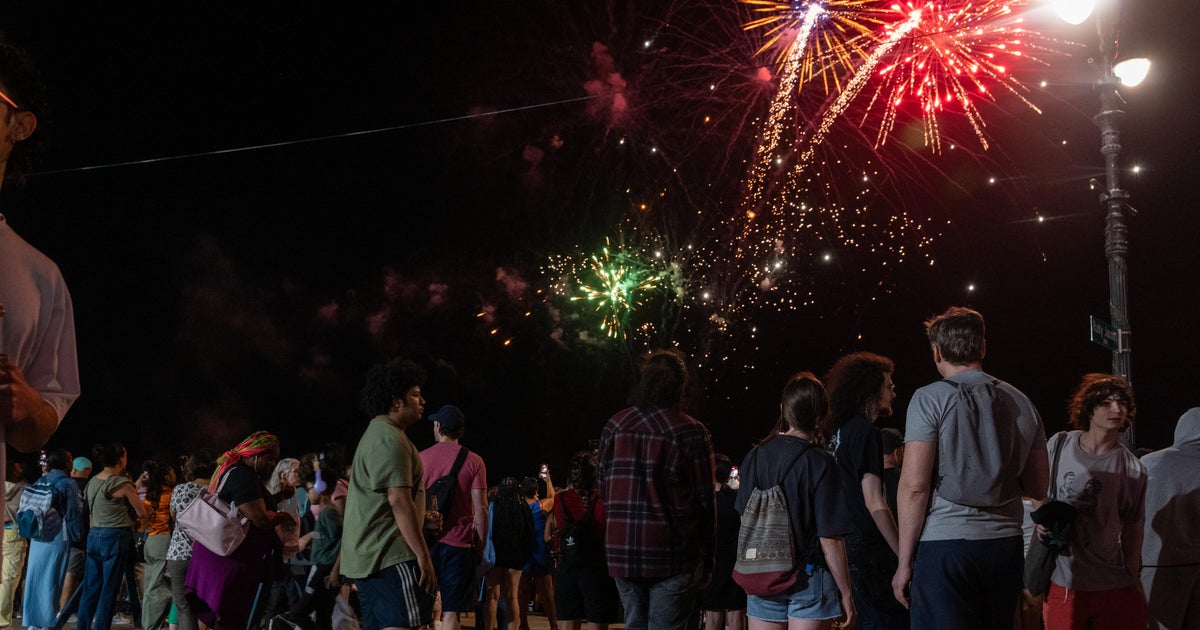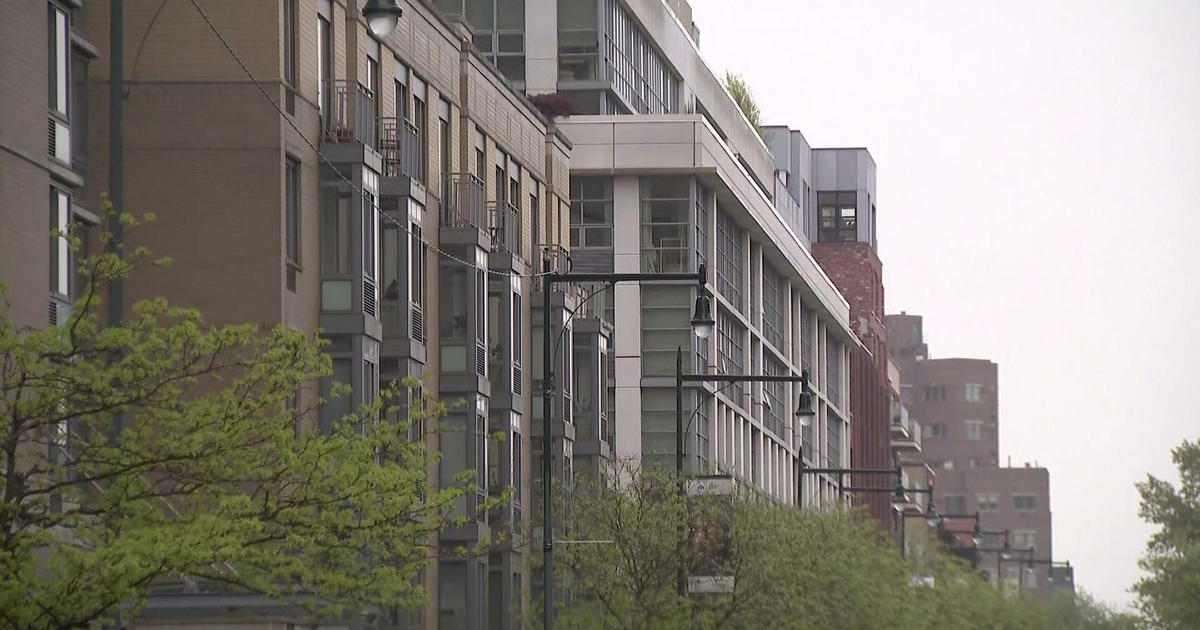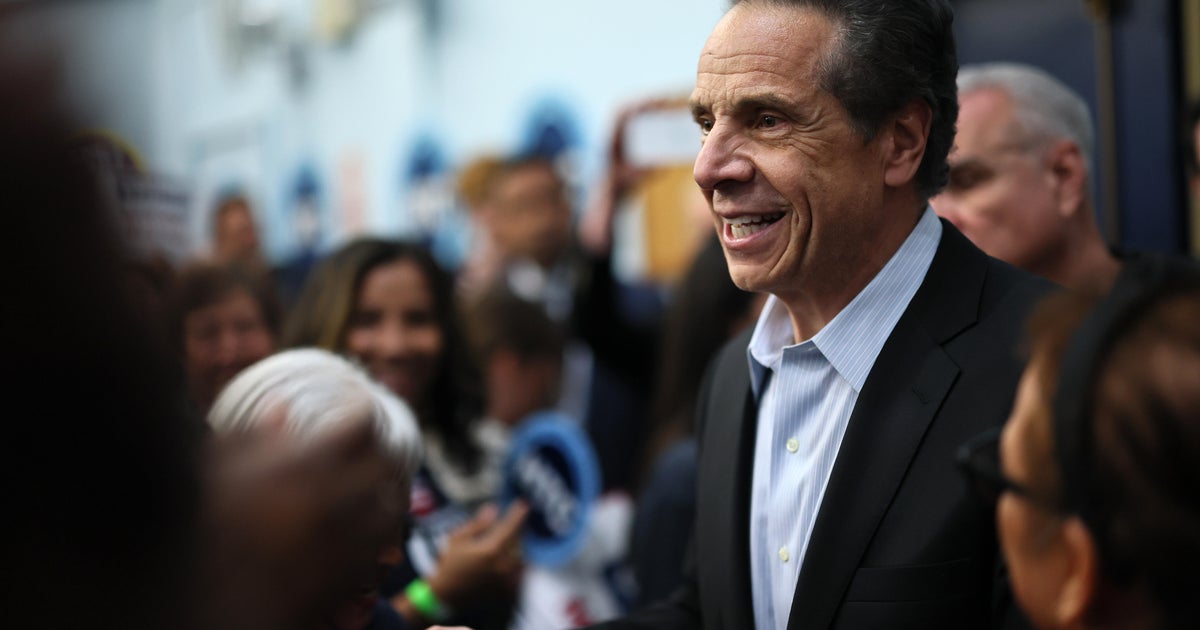NYC Pride March honors Stonewall Riots with 2025 theme, "Rise Up: Pride in Protest"
It's time for Pride in New York City, as the 2025 Pride March steps off this Sunday in Manhattan.
Organizers say honors the legacy of the 1969 Stonewall Riots and the inaugural Pride March that was held the following year.
What is the NYC Pride theme for 2025?
The 2025 theme is "Rise Up: Pride in Protest." The Stonewall Inn, now the site of the Stonewall National Monument on Christopher Street in Greenwich Village, is considered the birthplace of the gay rights movement.
On June 28, 1969, when homosexual acts were still outlawed in New York City, police raided the bar -- a place of refuge for the gay community and frequent target of harassment. The raid set off six days of clashes between police and LGBTQ+ protesters, and the riots that followed spearheaded LGBTQ+ activism in the United States.
"I think, especially at this time of year and in this sort of political climate, this is an opportunity for us to say what we want to say. 'Pride in Protest' is a callback, or a recall, to the heritage of the Pride Movement," Kazz Alexander, co-chair of NYC Pride, told CBS News New York. "It's OK to show up as you are, we're an inclusive space. So if folks feel free to protest, they can," he said. "It's a welcoming environment to say and think your perspective. We want everyone to be able to show up as their authentic selves."
Alexander said, as a native New Yorker, the annual march is a demonstration of what the city is all about.
"This weekend, we see the town sort of painted in rainbow, as it has been all month, but this is an opportunity to show, I think, the rest of the world what inclusion looks like. New York is a place that is, even if other folks don't want it to be, the most welcoming city, and I think this weekend and the Pride March is a reflection of that," he said. "So we welcome everybody to be themselves -- the rainbow isn't just about the queer movement, although that is very much the center of it, it's about fostering an inclusive space, and that needs to resonate everywhere."
NYC Pride faces sponsorship challenges for 2025
Organizers say 20% of corporate sponsors dropped or scaled back their support this year, leaving the group with a $750,000 funding gap.
"Our organization, just like many other organizations in the Pride Movement, have experienced some shortfalls with regard to our fundraising this year. But we're not federally funded, we're not funded by the state, so I think some of the federal executive orders have sort of scared some sponsors a bit," Alexander said. "We've had many sponsors double down and actually support us even further. So we're really looking for support from individual donors, from other foundations, who really believe that creating a safe space for everyone is important."
Alexander said they had to limit some programming, but have been able to keep their PrideFest street festival and Youth Pride event alive.
"One of our most important events this weekend is our Youth Pride, which is, for many young people, their very first opportunity for them to celebrate their unique individuality. So we think it's important for us to continue to create those safe spaces, even if we don't have the funding sources that we've had before," he said.
Combatting LGBTQ+ hate
Vijah Ramjattan, executive director of New York City's Office for the Prevention of Hate Crimes, says, "There's no place for hate in New York City."
"If you commit a crime, the police will be out there," he told CBS News New York.
The show 11 LGBTQ+ hate crimes in the first quarter of 2025, compared to 16 in the same time period the year prior. Ramjattan said his office is working to educate and heal communities.
"It will take all of us. Hate crimes cannot be solved or dismantled from the top, it has to be from the grassroots level," he said. "I also know that people in New York City want to know about each other. So the more we can create opportunities to speak to each other, get to know each about other, that's what we're focused on."
He also spoke about the importance of reaching younger New Yorkers.
"We know that if we want to stop hate crimes that adults do, we have to ensure that the youths who are going to be adults one day are educated about hate crimes and they understand the consequences of hate crimes," he said.




